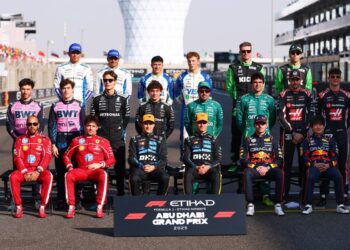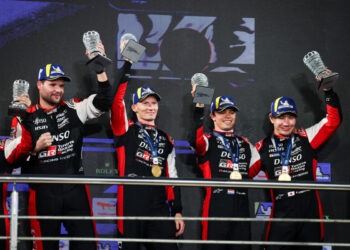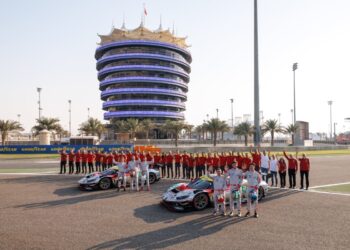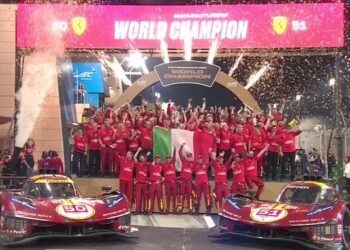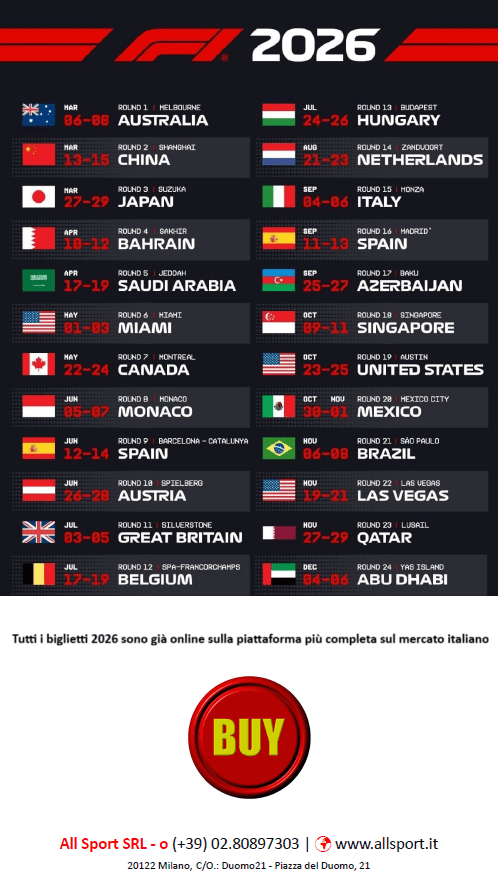The Bahrain International Circuit, deep in the island kingdom’s desert, is the smallest venue, in capacity terms, on the Formula One calendar. Even so, it has tended to be a difficult sell for locals. Between its first race in 2004 and 2013, the afternoon start time also played against it: Sunday is a working day in Bahrain. Last year’s move to a floodlit, twilight race proved a success, though, and the official attendance in 2015, pegged at ‘more than 32,000’ according to the Gulf Daily News, would seem to suggest the event has found its ideal start time.
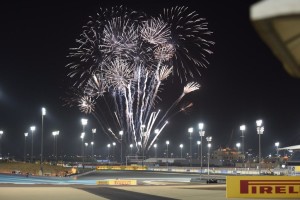 Organisers, who laid on a huge fireworks display at the end of the race which was only partially overshadowed by Daniel Ricciardo’s Renault engine explosion, were content. “It reaffirms the fact that the night race is attracting a new breed of fans to Formula One in Bahrain,” said BIC chief executive Shaikh Salman bin Isa Al Khalifa, who leads a team of hard-working circuit executives. “I am especially encouraged by the increase in the number of fans from outside of the region who have come to enjoy our Bahraini hospitality.”
Organisers, who laid on a huge fireworks display at the end of the race which was only partially overshadowed by Daniel Ricciardo’s Renault engine explosion, were content. “It reaffirms the fact that the night race is attracting a new breed of fans to Formula One in Bahrain,” said BIC chief executive Shaikh Salman bin Isa Al Khalifa, who leads a team of hard-working circuit executives. “I am especially encouraged by the increase in the number of fans from outside of the region who have come to enjoy our Bahraini hospitality.”
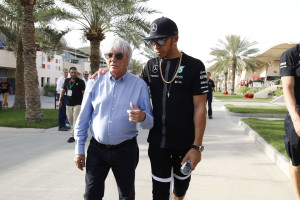 Bernie Ecclestone was on patrol in the Bahrain paddock, glad-handing the dignatories and holding a series of seemingly important meetings with the major players in the sport he continues to dominate. He made himself available to the media, too, including a revealing, if at times contradictory, interview with the BBC’s Eddie Jordan where, amongst other matters, he spilled the beans on the failure to secure a German Grand Prix this season. Hockenheim, which had seemed likely to step into the breach amidst the continuing management and financial turbulence at the Nurburgring, did not ultimately receive an offer it felt financially viable. “We made a contribution by accepting 50 per cent of the price of the contract – let’s do that and get yourself sorted out for next year,” Ecclestone confirmed. “That still left them in trouble.”
Bernie Ecclestone was on patrol in the Bahrain paddock, glad-handing the dignatories and holding a series of seemingly important meetings with the major players in the sport he continues to dominate. He made himself available to the media, too, including a revealing, if at times contradictory, interview with the BBC’s Eddie Jordan where, amongst other matters, he spilled the beans on the failure to secure a German Grand Prix this season. Hockenheim, which had seemed likely to step into the breach amidst the continuing management and financial turbulence at the Nurburgring, did not ultimately receive an offer it felt financially viable. “We made a contribution by accepting 50 per cent of the price of the contract – let’s do that and get yourself sorted out for next year,” Ecclestone confirmed. “That still left them in trouble.”
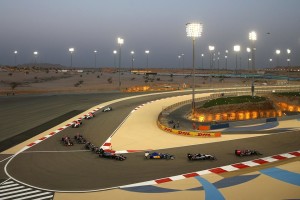 Ecclestone, who has always possessed an interesting turn of phrase, also suggested Formula One had become “too democratic” and that serious changes are required to make the sport more affordable and engaging. The debate over future engine regulations, which has rumbled since the start of the season, at least appears to be edging towards some sort of conclusion. Ecclestone, who is against the new generation of hybrid V6s, and the engine manufacturers, who are insistent that a hybrid component be maintained, appear to have reached agreement on a rules package which would see V6s retained but with increased power output, a scenario which would result in cars more difficult to drive and, crucially for ringmaster Ecclestone, louder and more visceral. That could happen for 2017, although measures to limit the cost of selling customer units to smaller teams will be essential in determining whether this latest round of tinkering works for everyone.
Ecclestone, who has always possessed an interesting turn of phrase, also suggested Formula One had become “too democratic” and that serious changes are required to make the sport more affordable and engaging. The debate over future engine regulations, which has rumbled since the start of the season, at least appears to be edging towards some sort of conclusion. Ecclestone, who is against the new generation of hybrid V6s, and the engine manufacturers, who are insistent that a hybrid component be maintained, appear to have reached agreement on a rules package which would see V6s retained but with increased power output, a scenario which would result in cars more difficult to drive and, crucially for ringmaster Ecclestone, louder and more visceral. That could happen for 2017, although measures to limit the cost of selling customer units to smaller teams will be essential in determining whether this latest round of tinkering works for everyone.
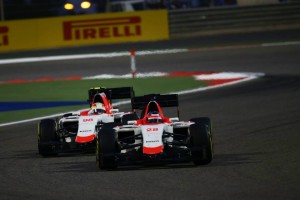 That Manor Marussia has been rooted firmly to the back of the field so far this season comes as no surprise, given the way the team was revived with only days left until the freight left for Australia. Four races in they are at least level on points – zero – with McLaren. With a three-week gap between races, the British-based team is believed to be planning a livery change, which might help convince Bernie Ecclestone, who has become an arch-critic of the team, the minnows are worth their place on the grid. They might even receive a little more television time when the circus rolls back into Europe: even for a backmarker outfit, Manor Marussia’s cars seem, for reasons not fully explained, to have been ignored by Formula One Management’s cameras thus far this season.
That Manor Marussia has been rooted firmly to the back of the field so far this season comes as no surprise, given the way the team was revived with only days left until the freight left for Australia. Four races in they are at least level on points – zero – with McLaren. With a three-week gap between races, the British-based team is believed to be planning a livery change, which might help convince Bernie Ecclestone, who has become an arch-critic of the team, the minnows are worth their place on the grid. They might even receive a little more television time when the circus rolls back into Europe: even for a backmarker outfit, Manor Marussia’s cars seem, for reasons not fully explained, to have been ignored by Formula One Management’s cameras thus far this season.


